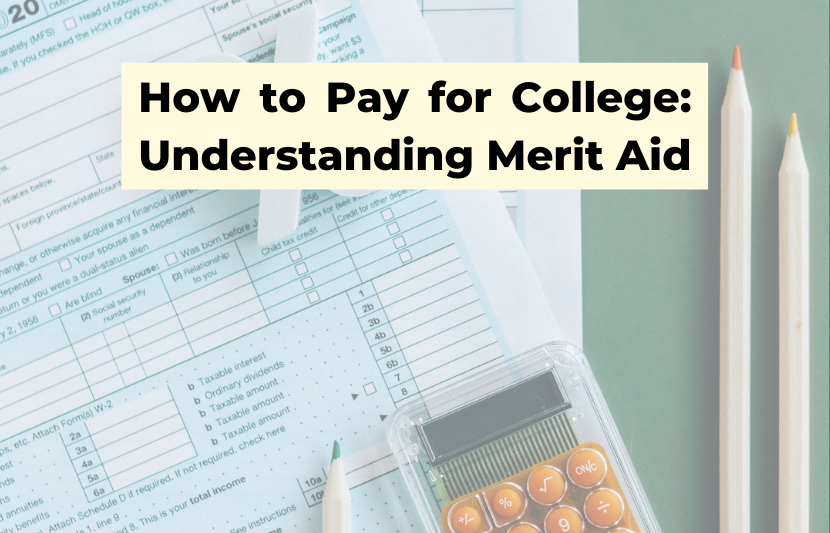In this episode of TUN TV, Dr. Crystal Rose interviews April Paris-Joseph, founder of Paris Educational Solutions, about the top 10 things most high school athletes do not know about playing sports in college.
Dr. Rose: Welcome to The University Network TV where we scan the globe to give students, their families, and educators the very best tips for student success. I’m your host today, Dr. Crystal Rose. In this college admission series, we’re exploring the college admission series about sports in college, “10 Things Most High School Athletes May Not Know About Playing Sports in College, Part 2.”
If you’re a high school athlete and you intend to play sports in college, this is for you. For this series, we’ve invited a very special guest, April Paris-Joseph of Paris Educational Solutions, to explore this topic.
Welcome back, April.
Paris-Joseph: Hi, Crystal. How are you doing today?
Dr. Rose: Thank you so much, April, for this very important conversation today. So, it’s a decision students need to make between whether they want to be a student-athlete or an athlete-student?
Paris-Joseph: I encourage you to prioritize your academics and your future career and, sure, shoot for the moon. I have a child who actually is playing professional so I get the dream and I get that it can happen, but that same child also has an education to fall back on. He did not go to college yet, but he could go to college. And he knows that that is a path that he could set himself on easily and then he would then go into his other career. But his decision was chase now, education later, and he has a great foundation through his high school.
I fear for the students who believe they’re going into the NFL, believe they’re going into the NBA, that aren’t prioritizing their academics, and then an ACL tears, or they get that particular kind of ankle fracture that means you’ll never be able to pivot on the court the way you used to. So these kinds of career-ending injuries happen, and I want them to be prepared for that.
Dr. Rose: What are some of the mantras you like to use with your students, with your family?
Paris-Joseph: We have lots of mantras in my house, and I pick on my own children because they’re great models for this stuff. But one of the mantras I used to tell my boys when they were in high scores, “I love your swagger.” And I tell my current students, too: “I love your swagger.” Have your swagger. Your swagger is great. But you know what, your brain will feed you when you’re 50, so let’s make sure that’s in order. Because your swagger is going to go away and you will develop the dad gut just like everybody else.
Dr. Rose: So, what type of funding or financial aid do Division 1 schools offer?
Paris-Joseph: Division 1 offers athletic scholarships, that’s the big thing there. Not every league in Division 1 offers athletic scholarships, though. That’s something people seem to not want to talk about. So when your buddy posts that he got a full athletic scholarship to Yale, it’s just not true. He may have gotten full financial money at Yale. That’s entirely possible. Yale has great financial aid that is entirely need-based. So the Ivy League, there’s no athletic money there. It is Division 1. So the big thing about D1, again, athletic scholarships are available.
Dr. Rose: Okay, we know about Division 1. What about Division 2? Are athletic scholarships available for students in Division 2 schools?
Paris-Joseph: People forget about D2. There are some great schools in that Division that are also both very academic and very athletic, so they’re definitely worth looking at and paying attention to.
Dr. Rose: Now I’d like to explore Division 3 schools. Are there athletic scholarships available for students in Division 3 schools?
Paris-Joseph: In Division 3, there are no athletic scholarships.
Dr. Rose: Now I’d like to follow up about a question regarding the National Association of Intercollegiate Athletics, the so-called NAIA league. What type of funding do they offer, since we know they have such great schools as well?
Paris-Joseph: The NAIA offers both athletic and academic scholarships for their athletes. So I just think people don’t think about it. That’s my thing with the NAIA – we don’t think about it. There are some great schools in the NAIA, with a lot of good opportunities. And I encourage all my athletes to look across the four bands when they’re creating their initial list and to not get fixated on anyone for any particular reason, because what you’re really looking for is the full package that works for you – the academics, the social, the financial and the athletic – and you can find that anywhere.
Dr. Rose: In which of the Divisions may students find their money?
Paris-Joseph: Two things that I’ll say about that. Merit money for academics are available, generally speaking, across all Divisions. Some schools – across all Divisions – just don’t do merit money.
Dr. Rose: Do Ivy Leagues offer merit money?
Paris-Joseph: Ivies won’t do merit money. Most of the schools in the D3 NESCAC League will not offer merit money. Wesleyan has a little bit, Trinity has a little bit, but nothing much to speak of in terms of merit.
Dr. Rose: Now I’d like to ask you about something. What do you call the sneaky money?
Paris-Joseph: Officially, Division 3 never has any athletic money, but they do have a lovely thing they call leadership scholarships. And merit is a great loose term that schools will use to meet whatever priority their institution has, where they want to place money.
So, students, athletes, there’s a reason we put “student” before “athlete.” There’s a reason that “student” comes first. We generally go alphabetical, right? You’d think we call it athlete-student based on the alphabetical but, no, we’re a student athlete.
The better your grades are, the more opportunities you create for yourself, the easier you make it for admissions to accept you into a program where you want to go be an athlete and a student, and the better opportunity you give them to offer some sort of financial package that works for your family.
Dr. Rose: The priority of one sport may differ depending upon the college. Can you walk us through why this matters, especially if a student loves a sport and just wants to play?
Paris-Joseph: We love this in college counseling and college admissions. We love to tell everyone, “It depends.” And this is another one of those “it depends.” What’s the difference going to be, between where you are now in high school and where you’re going to be? Well, that depends. What’s your experience like now, and where are you projecting yourself to go? So, a lot of this is about students doing the research and asking all the right questions and the hard questions.
So if you go to a high school that has no football team, then some other sport is king – maybe it’s basketball, maybe it’s soccer – but you want to know when you go to your college what sport is king. Where does my sport fall into the priority list? How popular is it to come to the games and to cheer? I had a student who rejected multiple colleges because the field was too far from the main campus. And this particular student was like, “No one’s coming to cheer for me.” This is not the priority, but for this student, it was like “No, no, no, I need to get my swagger up and on everything, my games.” So, no, it’s not the most important thing. I think I come down over and over again on academics first.
Dr. Rose: Does this have a lot to do with the students’ college research process?
Paris-Joseph: So, yeah, how’s that gonna fall? How much time does this coach expect you to spend the training in and out of season?
Dr. Rose: I’d like to break down the expectations for these student-athletes in the various Divisions. Now in Division 1, what are the expectations for students in terms of training?
Paris-Joseph: As a rule – and everything changes – so ask questions, find out your specific. Division 1 is going to be basically a year-round expectation.
Dr. Rose: What are the expectations for student-athletes in the D2 Divisions?
Paris-Joseph: Division 2, likely also.
Dr. Rose: What are the expectations of a student athlete in the D3 Division?
Paris-Joseph: In Division 3, even when we’re off – we have off-season – and we’re not having to train, those coaches expect you to keep up your fitness and to keep up your skill level. There is definitely, “You don’t get to come back like nothing, like you haven’t done anything.” Every summer, my kids, as student-athletes, trained all summer long. And they were in the weight room and they were doing their speed work. And they were doing these things and it was off-season.
Dr. Rose: So know what you’re getting into, that it’s really important to understand the expectations and the differences of the priorities of the sports at respective colleges and Divisions. That’s great.
Thank you so much, April, for this very important conversation today.
Paris-Joseph: Thanks.
Dr. Rose: And to our audience, thank you very much for joining us for this episode of the University Network’s television show with Paris Educational Solutions. Now with April’s advice, hopefully, you’ll be more informed about how to pursue sports in college. Here’s to your success. I’m your host, Dr Crystal Rose. Until next time on TUN TV.
Related:












